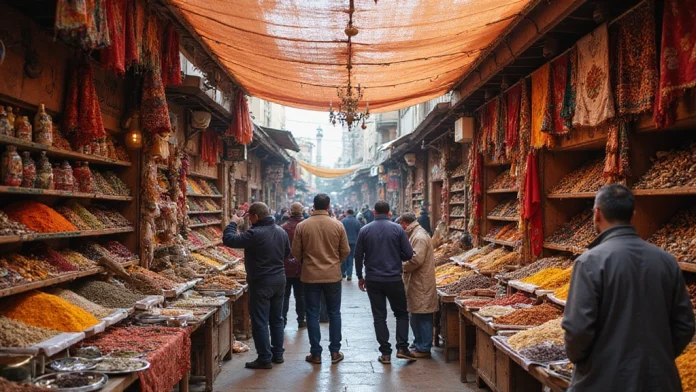10 Must-Visit Local Markets in Morocco That Will Steal Your Heart!
Morocco is a vibrant tapestry of sights, sounds, and smells, with local markets that pulse at the heart of its cultural landscape.
From bustling souks to quiet artisan corners, these markets are a treasure trove of unique finds and local flavors. Every stall tells a story, from vividly colored spices to handcrafted wares, each reflecting the rich Moroccan culture. Get ready to immerse yourself in the charm of these local markets, where haggling is an art form and every interaction feels personal. Let’s wander through ten unforgettable markets that will have you falling in love with Morocco at every turn.
1. Marrakech Souk
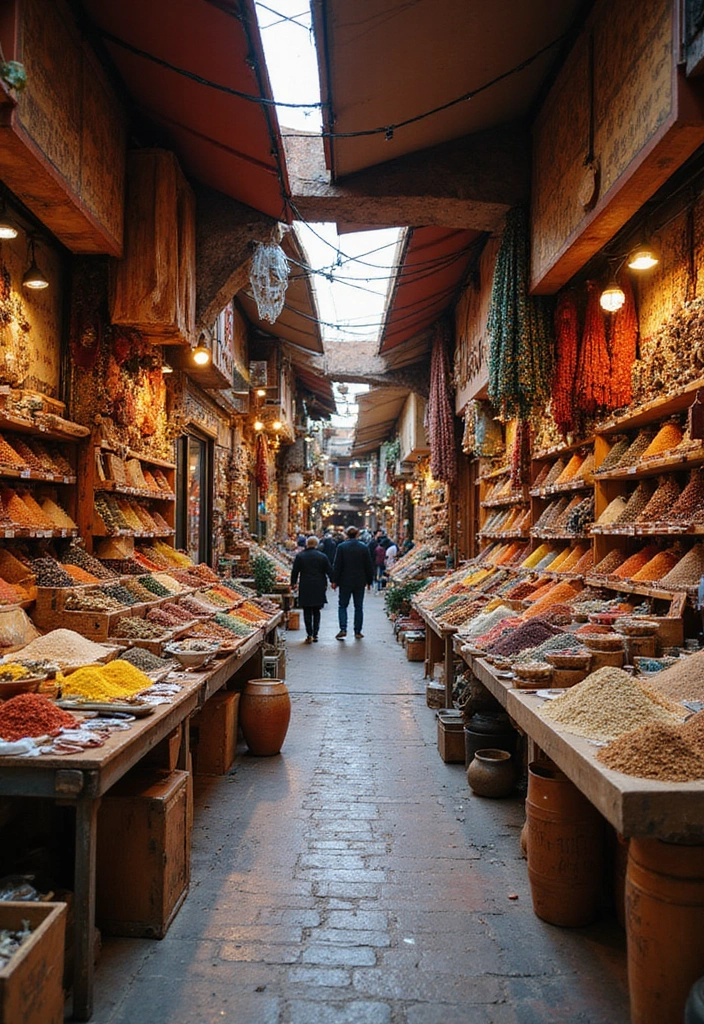
Step into the Marrakech Souk, where the vibrant chaos is a world of its own.
Narrow alleys weave between stalls overflowing with spices, pottery, and vibrant textiles. You can find everything here, from intricate lanterns to colorful tagines. Don’t miss the opportunity to taste freshly squeezed orange juice while you wander! Haggling is a must; it’s part of the experience. Start by offering half of what the vendor asks, and negotiate your way to a fair price. The energy is contagious, so be ready to lose track of time as you explore this captivating labyrinth.
Shopping Tips:
– Wear comfortable shoes; you’ll be doing a lot of walking.
– Keep an eye on your belongings in the crowds.
– Be polite but firm when negotiating prices.
Every corner offers something new, making it easy to spend hours here. The smell of spices, the colorful fabrics, and the friendly banter of shopkeepers create an atmosphere that draws you in and makes it hard to leave.
2. Essaouira’s Medina
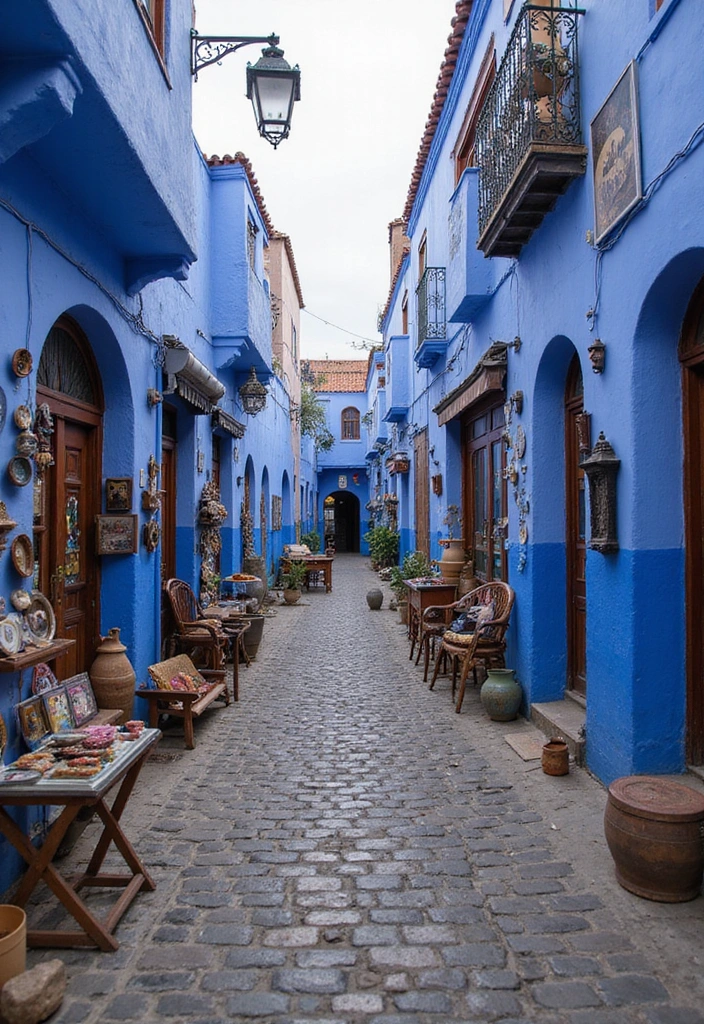
Essaouira’s Medina is a coastal gem where the air is filled with the scent of the ocean and the vibrant colors of artisan crafts.
This UNESCO World Heritage site offers a more relaxed vibe compared to other Moroccan cities. You can wander the charming streets lined with blue and white buildings, visiting shops selling everything from wooden crafts to local art. Make sure to check out the local fish market where you can enjoy the freshest seafood cooked right before your eyes!
Shopping Tips:
– Try to visit in the morning for a quieter experience.
– Bargain gently, as the locals are friendly and appreciate a good chat.
– Don’t miss the artisan workshops where you can watch craftspeople at work.
The relaxed ambiance allows for leisurely shopping and exploration. Each shop feels like a mini-gallery, showcasing the creativity that thrives in Essaouira.
3. Fes el-Bali
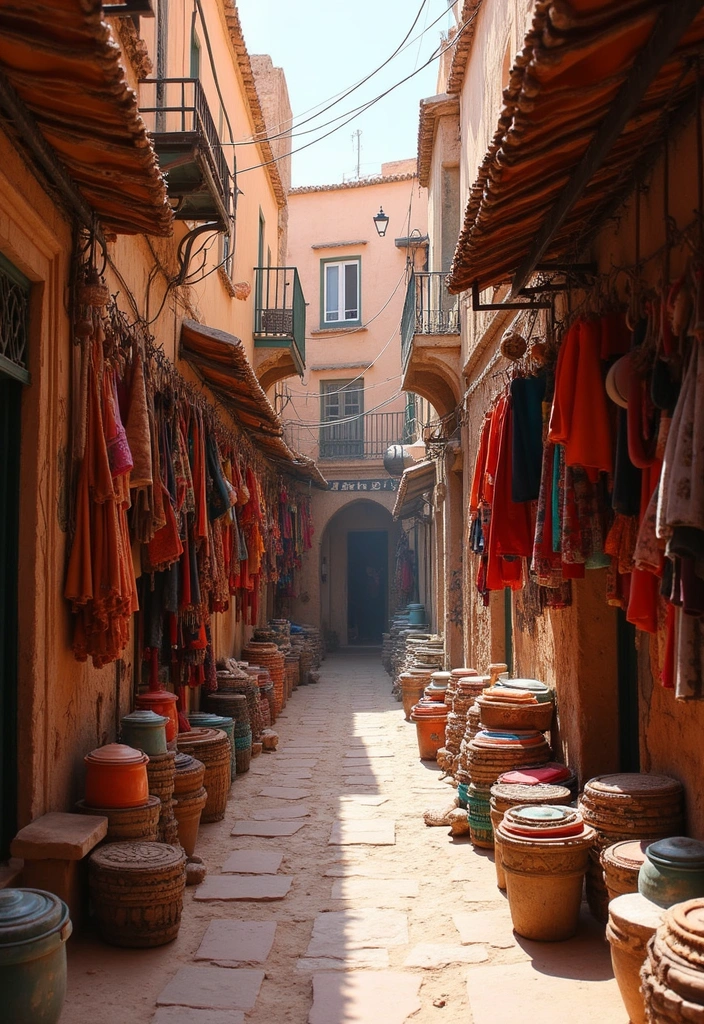
Fes el-Bali is a historic market that feels like stepping back in time.
The oldest part of Fes, this area is full of narrow winding streets and hidden treasures, including traditional handicrafts such as leather goods and intricate zellige tiles. The tanneries are a must-see; they offer a unique, albeit pungent, glimpse into the centuries-old craft of leather making. Take a moment to view the tanneries from the nearby terraces, where you can see the colorful dye pits in action.
Shopping Tips:
– Bring a scarf or mask for the tannery visit to block out strong odors.
– Be ready to be approached by guides offering assistance; it’s customary to tip.
– Look for authentic items, but beware of mass-produced goods that might not reflect true craftsmanship.
Every corner reveals a new craft or a friendly vendor ready to share stories about their products, making it an unforgettable experience.
4. Chefchaouen’s Blue Market
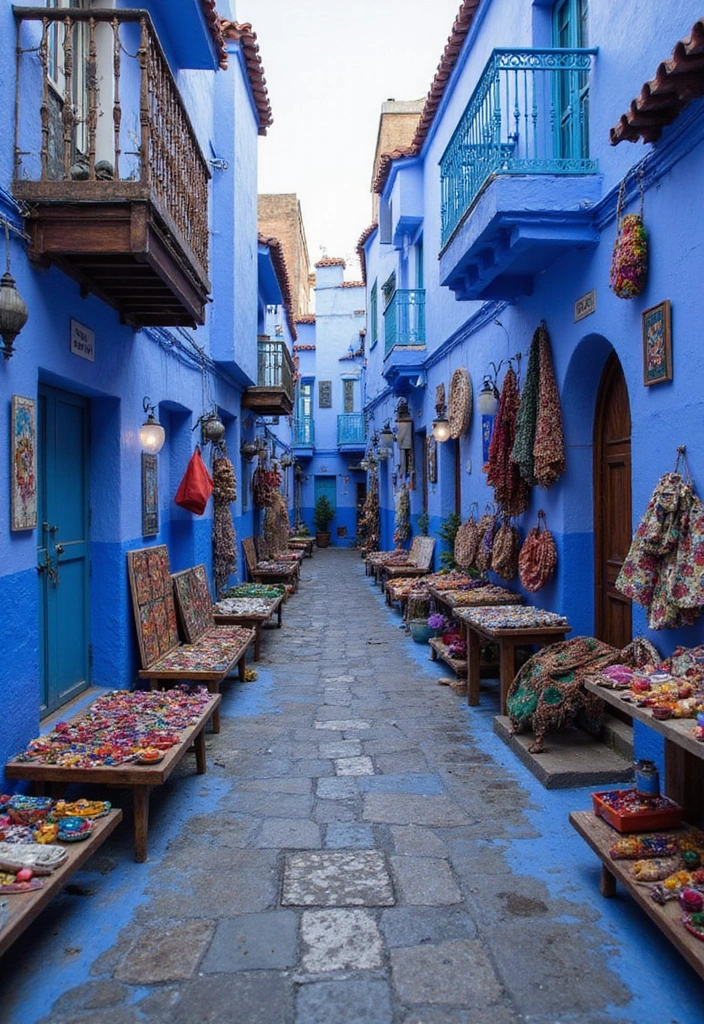
Nestled in the Rif Mountains, Chefchaouen is a stunning blue city that offers a unique market experience.
The market here is smaller but just as vibrant, filled with local artisans selling handwoven rugs, blankets, and traditional pottery. The beautiful blue walls of the city make for an enchanting backdrop as you shop. Look for the soft wool shawls and colorful ceramic tiles that echo the hues of the town. You can enjoy a cup of mint tea at a nearby café while soaking in the atmosphere.
Shopping Tips:
– Arrive early to avoid the midday rush and enjoy quieter shopping.
– Ask about local artisans to ensure you’re buying authentic pieces.
– Don’t forget to explore the side streets for hidden shops and local delicacies.
This market feels personal, as you often end up chatting with the artisans about their crafts, making it a lovely experience.
5. Rabat’s Oudaya Market
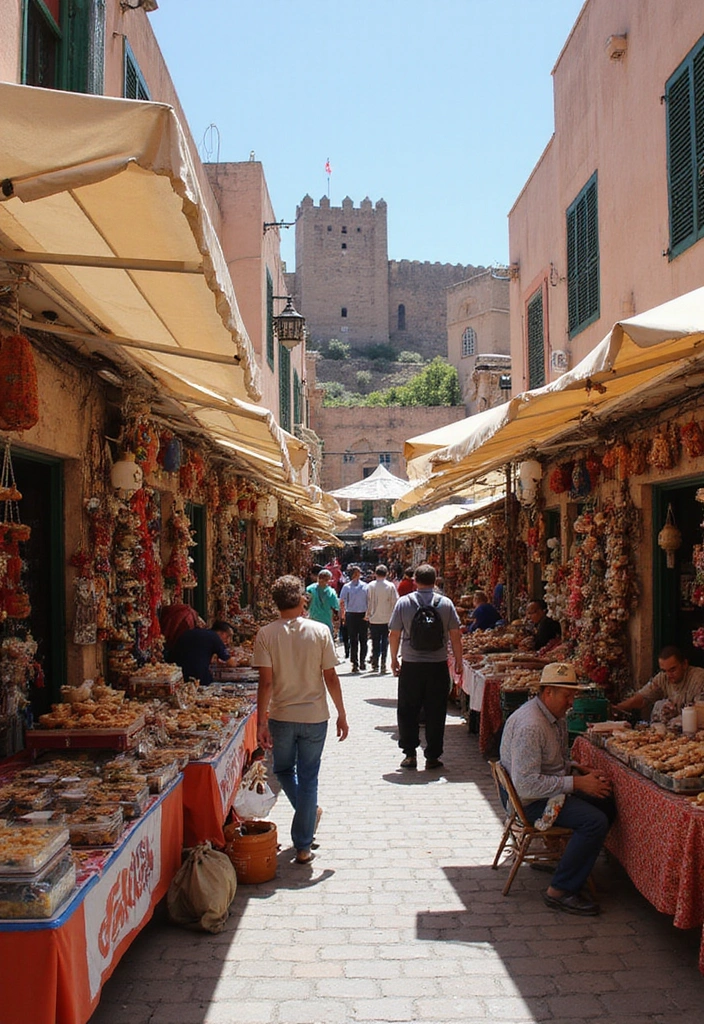
Rabat’s Oudaya Market brings together history and local culture in a quaint setting.
Located within the historic Oudaya Kasbah, this market is perfect for those looking to find unique souvenirs amidst stunning scenery. The stalls offer local handicrafts, jewelry, and traditional Moroccan sweets. Strolling through the market, you can enjoy the sounds of artists working and the smell of traditional Moroccan pastries. Make sure to try some local delicacies before you leave!
Shopping Tips:
– Visit in the late afternoon for a cooler shopping experience.
– Engage with artisans; they love sharing their stories and inspirations.
– Try the local sweets as a delightful way to recharge during your explorations.
The beautiful views of the ocean and the Kasbah add to the charm, making it a lovely place to shop and relax.
6. Tangier’s Grand Socco
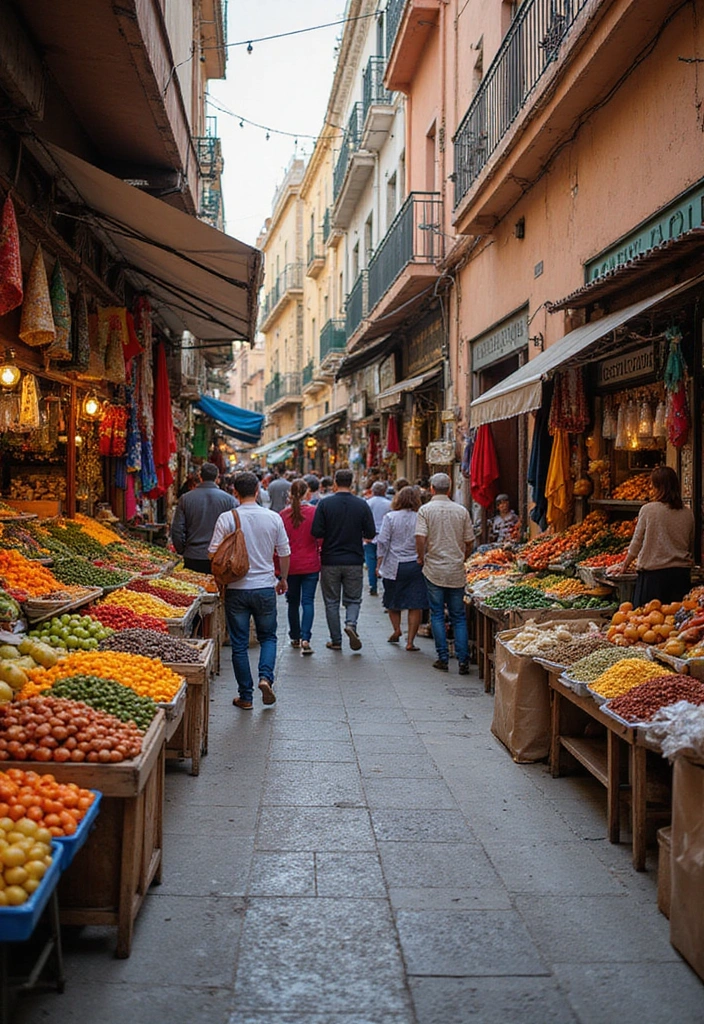
The Grand Socco in Tangier is a lively hub that perfectly encapsulates the city’s multicultural spirit.
This bustling market is filled with vendors selling spices, fruits, and textiles, making it a sensory delight. The vibrant atmosphere is amplified by the mix of locals and tourists. Don’t miss out on the chance to sample fresh olives and dates while you explore! Make your way to the nearby cafes for mint tea and people-watching after your shopping spree.
Shopping Tips:
– Try to haggle for the best prices, but keep it friendly.
– Visit in the morning when the market is freshest and less crowded.
– Look out for unique items that reflect the city’s diverse history.
With its lively ambiance, the Grand Socco offers a taste of Tangier that will stick with you long after you leave.
7. Agadir’s Souk El Had
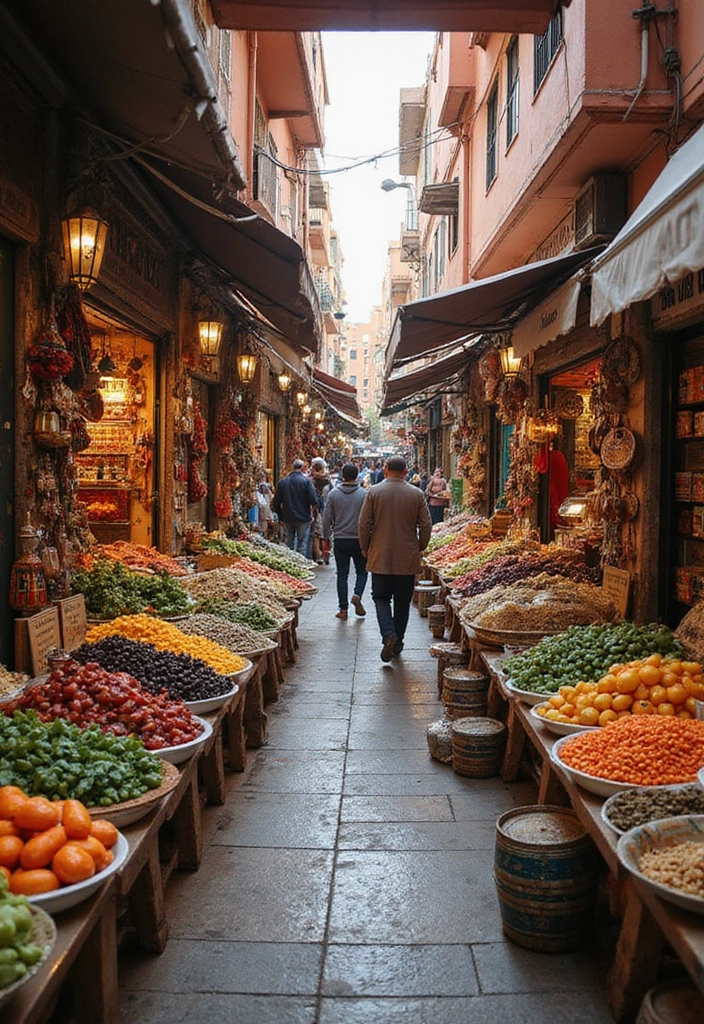
Agadir’s Souk El Had is a must-visit for anyone who loves a sprawling local market experience.
This large market offers everything from fresh produce to handicrafts, and is less touristy than others, providing a more authentic shopping experience. Locals come here to shop for their daily needs, which gives it a genuine community vibe. You can find beautifully woven baskets, handmade jewelry, and plenty of delicious street food.
Shopping Tips:
– Go on a weekday for a less crowded experience.
– Don’t skip the food stalls; samples are often offered!
– Keep small change handy for easier transactions.
The friendly atmosphere and the variety of goods make it a delightful place to spend an afternoon.
8. Meknes’ Heri es-Souani
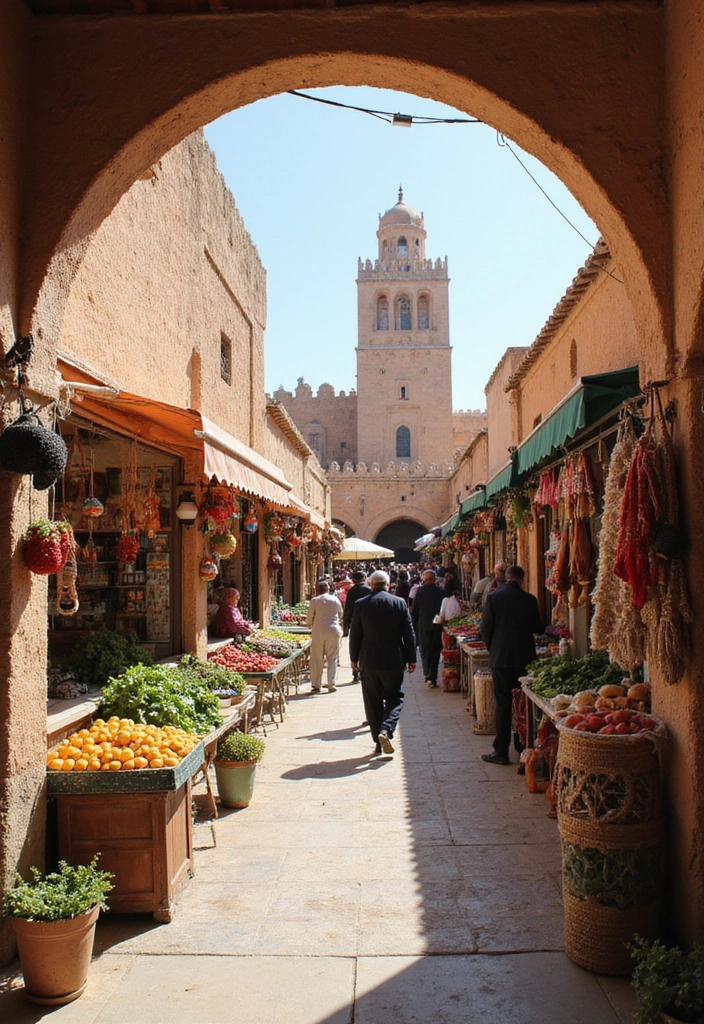
Meknes’ Heri es-Souani offers a unique market experience amid the city’s rich history.
This market area, known for its impressive granaries and stables, also hosts local vendors selling organic produce and traditional crafts. The atmosphere is more relaxed compared to major cities, attracting locals and a few curious travelers. Explore the nearby historic sites after finding fresh produce or local cheese at the market.
Shopping Tips:
– Visit early in the morning for the best selection of fresh goods.
– Engage with the locals; they’re eager to share tips about the city.
– Look for organic products that reflect the region’s agricultural heritage.
The combination of history and commerce creates a unique vibe that adds depth to your shopping experience.
9. Ouarzazate’s Souk
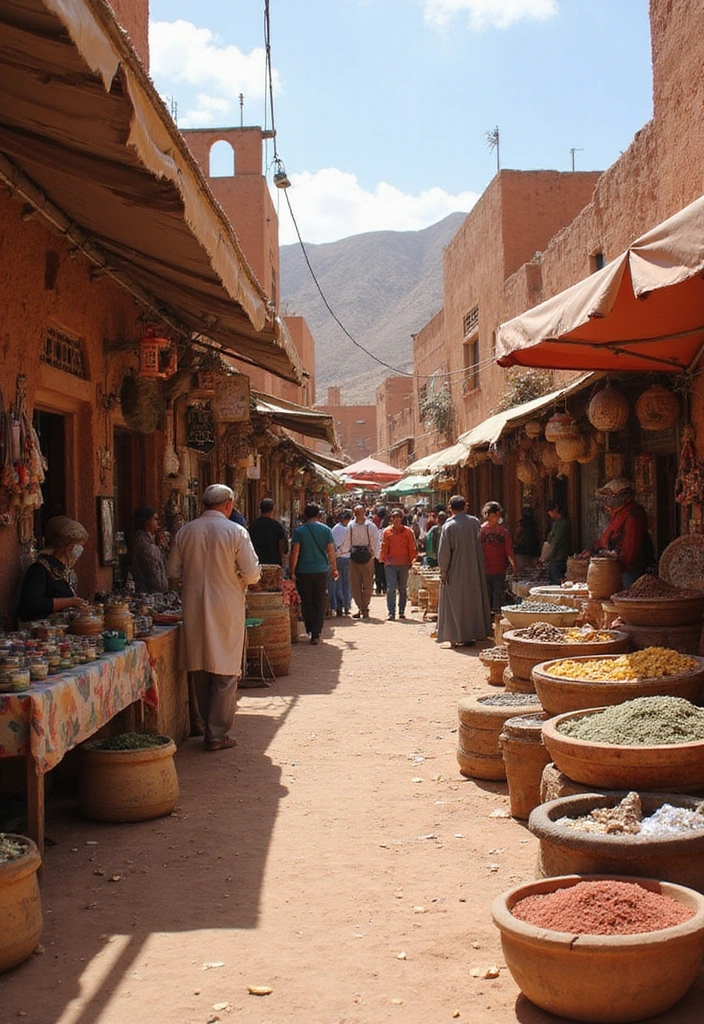
Ouarzazate’s Souk is a vibrant market that perfectly reflects the culture of this gateway to the Sahara.
While it might not be as large as others, it offers a taste of local life with crafts such as Berber rugs and traditional pottery. The friendly vendors create a welcoming environment, encouraging visitors to explore and discover. The market is also a great place to buy spices and local food products.
Shopping Tips:
– Take your time; the experience is as much about interaction as it is about shopping.
– Be prepared for some intense haggling; it’s all part of the fun.
– Seek out local specialties that may not be available in larger cities.
The unique goods and engaging vendors make this market a hidden treasure in the heart of Morocco.
10. Tétouan’s Medina
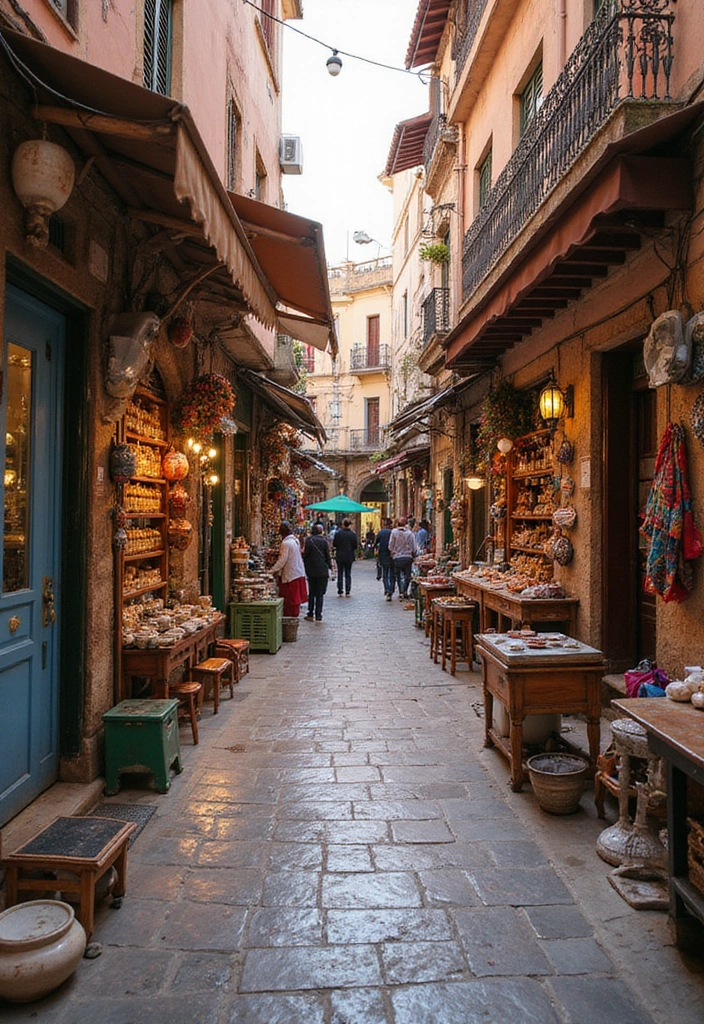
Tétouan’s Medina is a UNESCO World Heritage site rich in history and local flair.
The market here is less commercialized, offering a more authentic taste of Moroccan culture. You can find beautiful ceramics, intricate embroidery, and colorful textiles. The small, winding streets are lined with shops and stalls, each offering unique crafts made by local artisans. Stop to enjoy a cup of traditional tea while you take in the atmosphere.
Shopping Tips:
– Wear comfortable clothing for walking through the narrow streets.
– Ask about the history behind the crafts for a deeper appreciation.
– Keep your camera handy for the picturesque views.
The charm of Tétouan lies in its less-touristed streets and the warmth of its vendors, making every purchase feel like a meaningful connection.
Conclusion
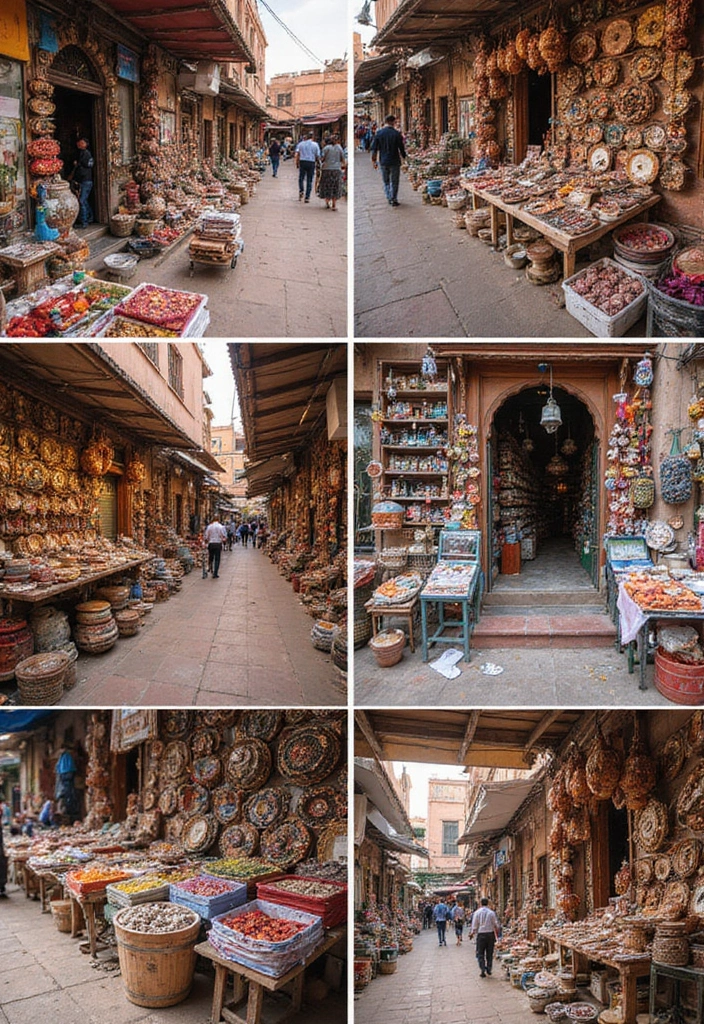
Each of these local markets in Morocco offers a unique glimpse into the country’s rich culture and vibrant daily life.
From the bustling souks of Marrakech to the serene stalls of Chefchaouen, every market tells its own story. Whether you’re shopping for souvenirs or simply soaking in the atmosphere, these markets will undoubtedly leave a lasting impression. Remember to embrace the art of haggling and engage with local artisans to truly experience the heart of Moroccan culture.



















